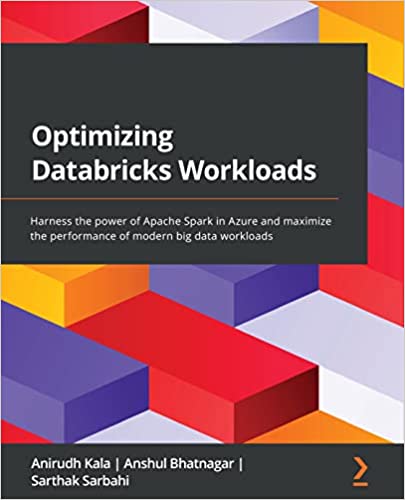

Most ebook files are in PDF format, so you can easily read them using various software such as Foxit Reader or directly on the Google Chrome browser.
Some ebook files are released by publishers in other formats such as .awz, .mobi, .epub, .fb2, etc. You may need to install specific software to read these formats on mobile/PC, such as Calibre.
Please read the tutorial at this link: https://ebookbell.com/faq
We offer FREE conversion to the popular formats you request; however, this may take some time. Therefore, right after payment, please email us, and we will try to provide the service as quickly as possible.
For some exceptional file formats or broken links (if any), please refrain from opening any disputes. Instead, email us first, and we will try to assist within a maximum of 6 hours.
EbookBell Team

4.0
56 reviewsAccelerate computations and make the most of your data effectively and efficiently on Databricks
Key Features
Understand Spark optimizations for big data workloads and maximizing performance
Build efficient big data engineering pipelines with Databricks and Delta Lake
Efficiently manage Spark clusters for big data processing
Book Description
Databricks is an industry-leading, cloud-based platform for data analytics, data science, and data engineering supporting thousands of organizations across the world in their data journey. It is a fast, easy, and collaborative Apache Spark-based big data analytics platform for data science and data engineering in the cloud.
In Optimizing Databricks Workloads, you will get started with a brief introduction to Azure Databricks and quickly begin to understand the important optimization techniques. The book covers how to select the optimal Spark cluster configuration for running big data processing and workloads in Databricks, some very useful optimization techniques for Spark DataFrames, best practices for optimizing Delta Lake, and techniques to optimize Spark jobs through Spark core. It contains an opportunity to learn about some of the real-world scenarios where optimizing workloads in Databricks has helped organizations increase performance and save costs across various domains.
By the end of this book, you will be prepared with the necessary toolkit to speed up your Spark jobs and process your data more efficiently.
What you will learn
Get to grips with Spark fundamentals and the Databricks platform
Process big data using the Spark DataFrame API with Delta Lake
Analyze data using graph processing in Databricks
Use MLflow to manage machine learning life cycles in Databricks
Find out how to choose the right cluster configuration for your workloads
Explore file compaction and clustering methods to tune Delta tables
Discover advanced optimization techniques to speed up Spark jobs
Who this book is for
This book is for data engineers, data scientists, and cloud architects who have working knowledge of Spark/Databricks and some basic understanding of data engineering principles. Readers will need to have a working knowledge of Python, and some experience of SQL in PySpark and Spark SQL is beneficial.